SLOVYANSK, Ukraine -- Well-trained, well-equipped Ukrainian combat forces are now in "assembly areas," close enough to front line areas, meaning they could launch a concerted attack on Russian positions in a relatively short time period, according to Western officials.
In the meantime, Ukraine has already increased its offensive operations, both within its own borders and in Russia and beyond, in order to attempt to create more favorable conditions ahead of a much-anticipated counteroffensive.
Current operations were part of a "bigger plan," which would eventually lead to a major offensive, a senior Ukrainian commander said in a recent interview with ABC News.
Unconfirmed reports indicated on Monday that Ukrainian offensive actions in certain areas of the front lines were increasing.
The Russian Ministry of Defense claimed to have repelled a number of Ukrainian attacks, however the leader of the Russian mercenary Wagner Group, Yevgeny Prigozhin, said Ukrainian forces had advanced around the settlement of Berkhivka, to the north of the Ukrainian eastern city of Bakhmut.
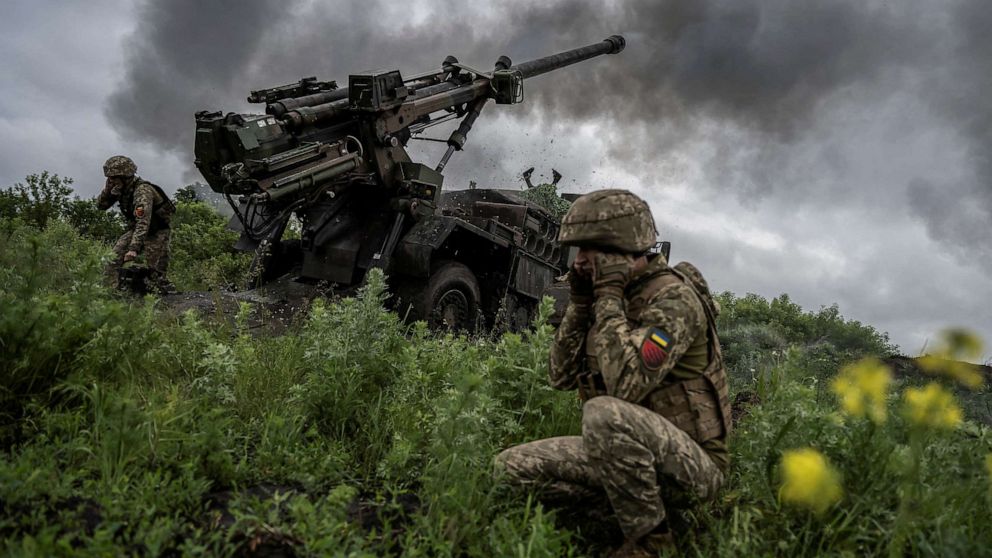
Ukrainian service members of the 55th Separate Artillery Brigade fire a Caesar self-propelled howitzer towards Russian troops, amid Russia's attack on Ukraine, near the town of Avdiivka in Donetsk region, Ukraine, May 31, 2023.
Viacheslav Ratynskyi/Reuters
"The troops are fleeing," said Prigozhin in an audio message posted online.
It's unclear whether fresh offensive actions by the Ukrainian military will evolve into larger assaults on wider areas of the Russian front lines or whether they are more localized -- or even diversionary operations -- aimed at testing and wearing down the Russian defenses in preparation for a more substantial offensive later on.
In an online briefing this week, Western officials cautioned that, even though Ukraine now has the military weaponry and equipment it needs to punch through the Russian lines, a large-scale assault could still be "weeks" away.
The officials said Ukraine was currently engaged in "shaping operations," which refers to a series of actions on and off the battlefield aimed at destabilizing the Kremlin and the Russian military in order to create the optimal conditions for the counteroffensive.
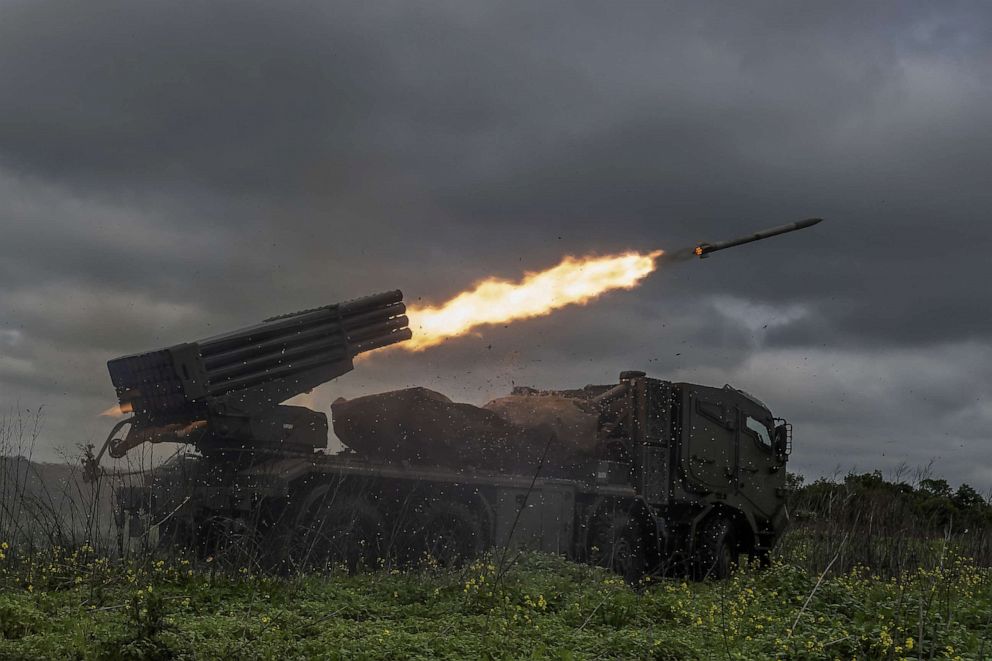
Ukrainian service members of the 55th Separate Artillery Brigade fire a Vampire multiple launch rocket system towards Russian troops, amid Russia's attack on Ukraine, near the town of Avdiivka in Donetsk region, Ukraine, May 31, 2023.
Viacheslav Ratynskyi/Reuters
Despite officially denying involvement in a drone attack last week on Moscow, in private Ukrainian officials have indicated that Ukrainian intelligence was behind that strike and a number of other recent attacks inside Russia.
Officials in the Russian region of Belgorod have also reported a spike in Ukrainian artillery and drone attacks in recent days.
The assessment from Western officials given to reporters was that the series of attacks inside Russia are "difficult for the Russian leadership" as the Kremlin has to strike a balance between recognizing the seriousness of what had been happening, but also not reinforcing the notion that the war in Ukraine is now having a tangible impact in Russia.
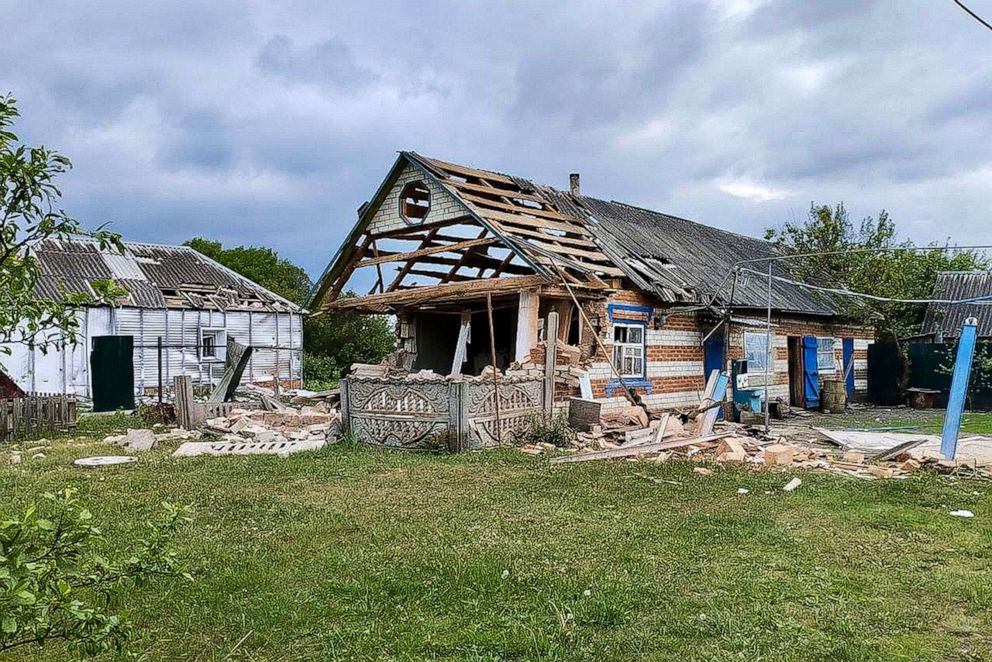
This handout photo released by Belgorod region governor Vyacheslav Gladkov's telegram channel, shows damaged houses in Russia's western Belgorod region on Tuesday, May 23, 2023.
AP
The officials said they were now "tracking" Russian media sources to see whether criticism of the Russian leadership might become "a less taboo thing".
Over the past two weeks ABC News has interviewed four middle-ranking and senior Ukrainian commanders, as well as low-ranking soldiers about the forthcoming counteroffensive.
Most of the men said preparations for the counteroffensive are moving into the final stages.
Colonel Oleksandr Bakulin, who commands around 6,000 men positioned near the embattled eastern city of Bakhmut said Ukraine was "pushing" in some frontline areas, however he cautioned that in other areas, Russian forces were doing the same.
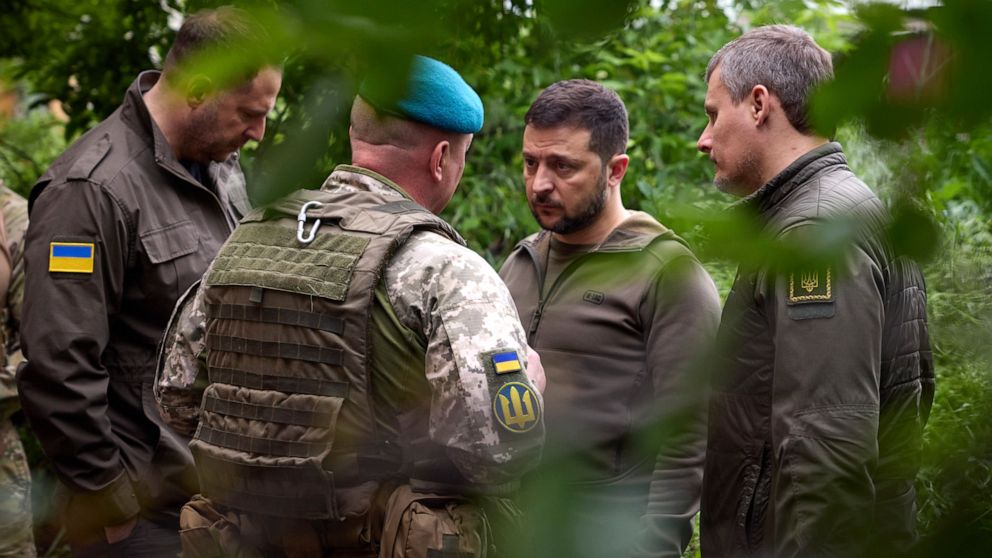
In this photo provided by the Ukrainian Presidential Press Office, Ukrainian president Volodymyr Zelenskyy, second right, listens to military commander as he visits the Donetsk region, Ukraine, May 23, 2023.
AP
Bakulin said recent Ukrainian gains in areas near to Bakhmut were part of a "bigger plan" which would "eventually lead to the counteroffensive."
In recent weeks Ukraine has also stepped-up long-range missile strikes on areas of occupied territory deep behind the Russian lines.
The efficacy of such strikes is impossible to judge, given that there is little public comment about the strikes and claims by either side cannot be verified.
However verifiable videos circulating online fit the same broad pattern seen in the run-up to Ukraine's counteroffensive on the city of Kherson back in November which was preceded by Ukrainian strikes on Russian military assets and logistics.
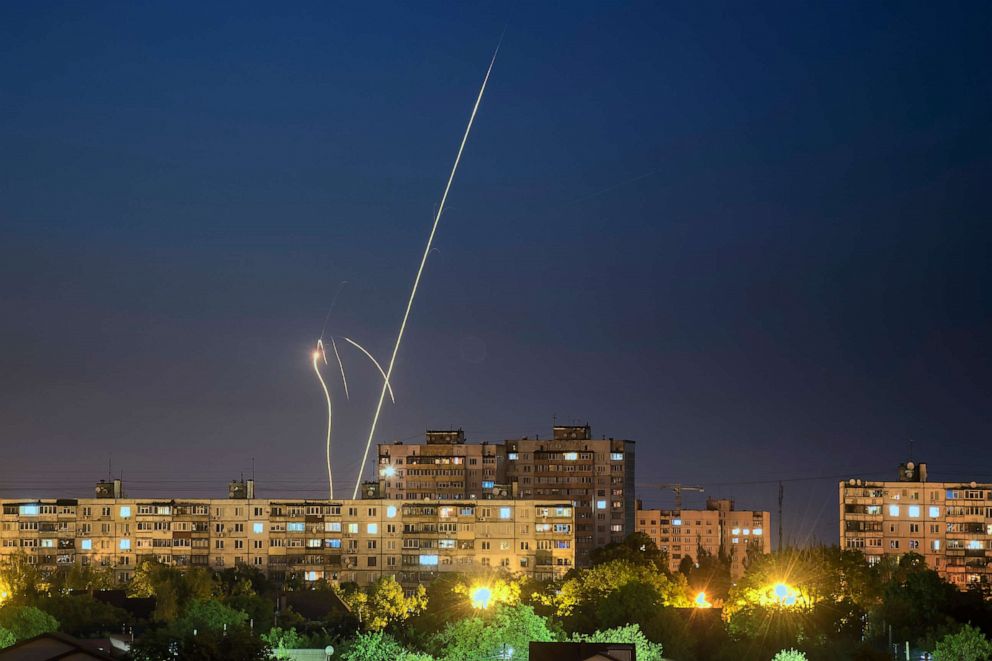
Russian rockets are launched against Ukraine from Russia's Belgorod region, seen from Kharkiv, Ukraine, on June 4, 2023.
Vadim Belikov/AP
Officials in the United Kingdom said their Storm Shadow missiles are now being used by the Ukrainian military.
Those missiles have a range of around 155 miles, which is roughly triple the range of the missiles which the United States has supplied to Ukraine for use with the HIMARS missile-launchers.
In order not to reveal sensitive information to the Russians the quantities of long-range missiles supplied to Ukraine has not been revealed.
ABC News contributing military analyst, retired Col. Steve Ganyard questioned whether Ukraine's stocks of Storm Shadows will be sufficient to substantially weaken Russian forces.
"Continued attacks on fuel storage areas and ammunition dumps will eventually prove useful in weakening Russia's ability to wage war," Ganyard said.
However he was skeptical about whether this can be achieved to a sufficient level over the next few weeks.
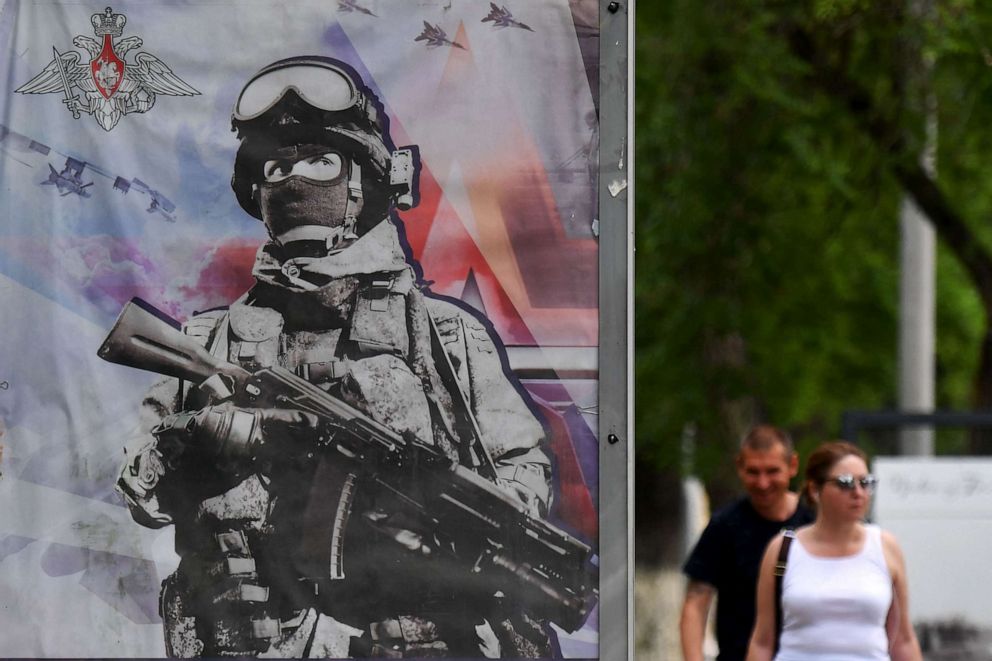
A billboard promoting contract army service is pictured in the Russian city of Belgorod, some 40 km from border with Ukraine, on May 27, 2023.
Olga Maltseva/AFP via Getty Images
Russian defensive fortifications are also now, in places, "potentially formidable," said Western officials.
Ganyard said he agreed with that assessment. He said there are still question marks about whether the Ukrainians "have the overwhelming force required to advance against a well dug-in opponent."
However, he said, it was also important to bear in mind "how surprisingly poorly the Russian military has performed in this war."
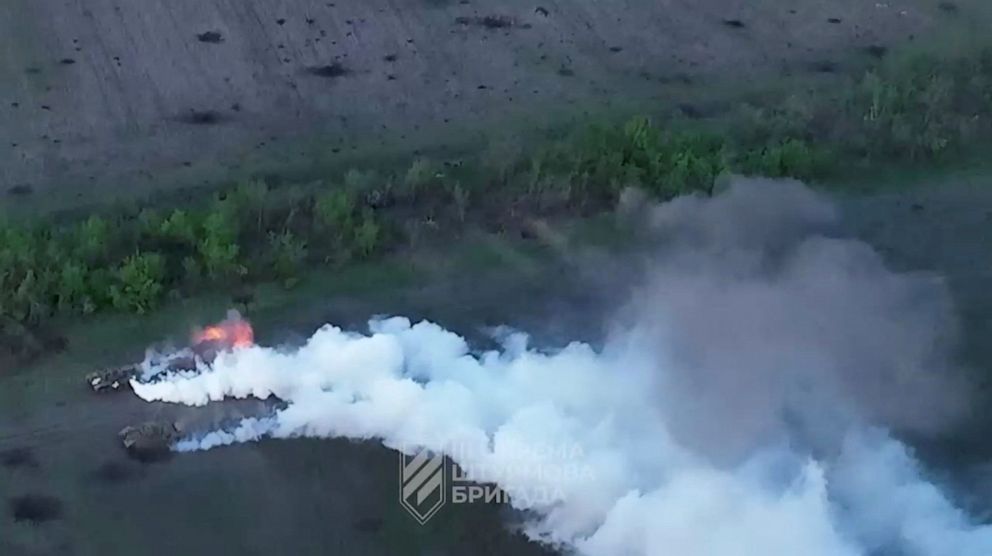
A view of military vehicles as Ukrainian forces destroy Russian positions in direction of Bakhmut, near Klischiivka, Donetsk Region, Ukraine, in this still taken from a video released on June 4, 2023.
Ukrainian Armed Forces Press Service via Reuters
"It will all come down to how good Ukrainian and western supplied intelligence is, and how well Ukraine is able to exploit the Russian weaknesses they find," Ganyard said.
Senior Ukrainian officials, including President Volodymyr Zelenskyy have in recent days given a number of interviews and statements in which they have said that Ukrainian forces are now ready for the pending offensive.
However, as Western officials conceded, a major attack might still be weeks away.
Keeping the Russian military waiting and guessing is an important part of the Ukrainian game plan.
Ukrainian counteroffensive 'shaping-up' amid attempts to destabilize Russian forces - ABC News
Read More

No comments:
Post a Comment